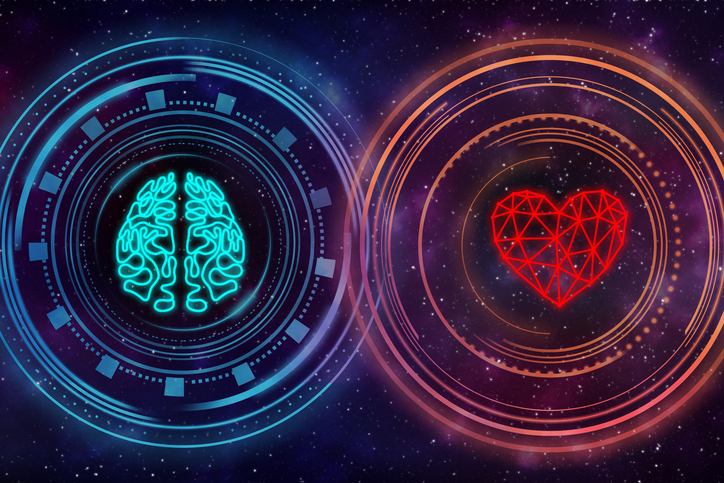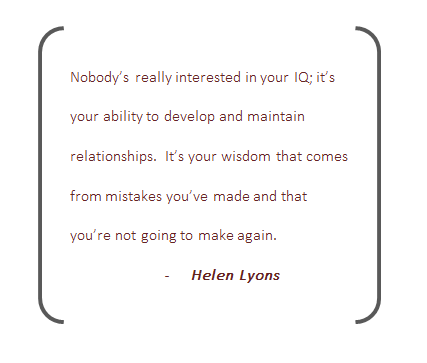The rise of the emotional economy in the world of AI
- HRM Asia Newsroom

Artificial intelligence is radically re-orienting the very nature of the workforce.
With automation paving the way for routine technical tasks to be surrendered to robots, a new and invaluable workplace currency has emerged – the emotional economy.
Here, employees who possess ‘soft skills’ or emotional intelligence are highly sought after – an emerging elite.
Empathy, communication, adaptability and problem solving will become an employee’s most valuable asset, not to mention the most sought-after attributes by HR departments and employers.
Unlike hard skills, which can be proven and measured, soft skills refer to the emotional intelligence of an employee, which includes their general disposition and personality, their attitude and intuitions.
This emerging economy will prompt a shift in job roles and the very make-up of the workforce.
Process style jobs that can be automated will become lower volume. People will increasingly be pulled from back-office and manual labour jobs as AI replaces them.
However, where there is job loss, there is also job gain. People and relationship-oriented roles are set to increase by 60%, hence the demand for soft skills and soft skills development.
According to research by Deloitte Australia, the number of soft skill intensive jobs will grow 2.5 times faster than other roles.
Furthermore, the research predicts that soft skill-intensive jobs will make up almost two-thirds of the workforce by 2030.
In the emotional economy, the world will run on emotional intelligence – EQ will take the place of IQ.
Associated with optimism, greater impulse control, better mood and empathy, EQ can affect a range of work behaviours, including commitment, performance, teamwork, talent development, innovation, quality of service and loyalty.
Recently the OrgDev Institute gathered HR leaders to explore the effects of artificial intelligence on the workforce – including the rise of the emotional economy – and the implications on the future of Human Resources, which has been converted to a Whitepaper.
Speaking at the event, Helen Lyons of Australia’s New South Wales Department of Planning and Environment said the rise of EQ is already evident across her organisation.
“Nobody’s really interested in your IQ; it’s your ability to develop and maintain relationships. It’s your wisdom that comes from mistakes you’ve made and that you’re not going to make again. Not on our time,” she explained.
 As the focus on soft skills in the workforce increases, so too will the expectation on HR that they are underpinned by proven tools that provide hard measurement.
As the focus on soft skills in the workforce increases, so too will the expectation on HR that they are underpinned by proven tools that provide hard measurement.
Unfortunately, this isn’t as straightforward as it seems. In fact, in a time where it will become one of the most sought-after skills by employers, measuring the value of staff who possess such qualities, and also their return on investment, will prove a significant challenge.
The inability to hard measure ‘soft skills’ is an issue for the HR industry as a whole and limits the ability to build programs that have the capacity to both train and nurture said skills.
Measuring the value of an HR department will also become increasingly challenging.
Ben Morris, construction company, Mirvac‘s Co-Head of HR and GM Performance Reward said his industry struggles with articulating the benefits and value of HR.
“We don’t do a particularly good job of measuring the effectiveness and outcomes of our programs. It’s a real shame because I think better measurement and better demonstrations of the links to commercial outcomes would earn our HR functions greater credibility, greater impact, and therefore scope to do even more of all the fun things we want to do as HR professionals,” he said.
While technical skills have been an important benchmark when hiring new employees, HR departments will now need to adjust this to prepare for the workforce of the future.
After all, soft skills may be the only thing AI can’t supersede. As AI takes over, yes it can find out all the information, but what it doesn’t know is what to do with it.
AI can find the data but how does it bring in the human skills to analyse what has happened in the past and the impact it might have in the future?
A monumental shift in the values of employees is set to change. The industry must learn to focus on what sets us apart from AI, rather than chasing and upskilling to keep up with it.
The OrgDev Institute whitepaper – The Future of HR: Rising to the challenges of AI, staff retention and the longevity of a critical industry – is available as a free download here.







